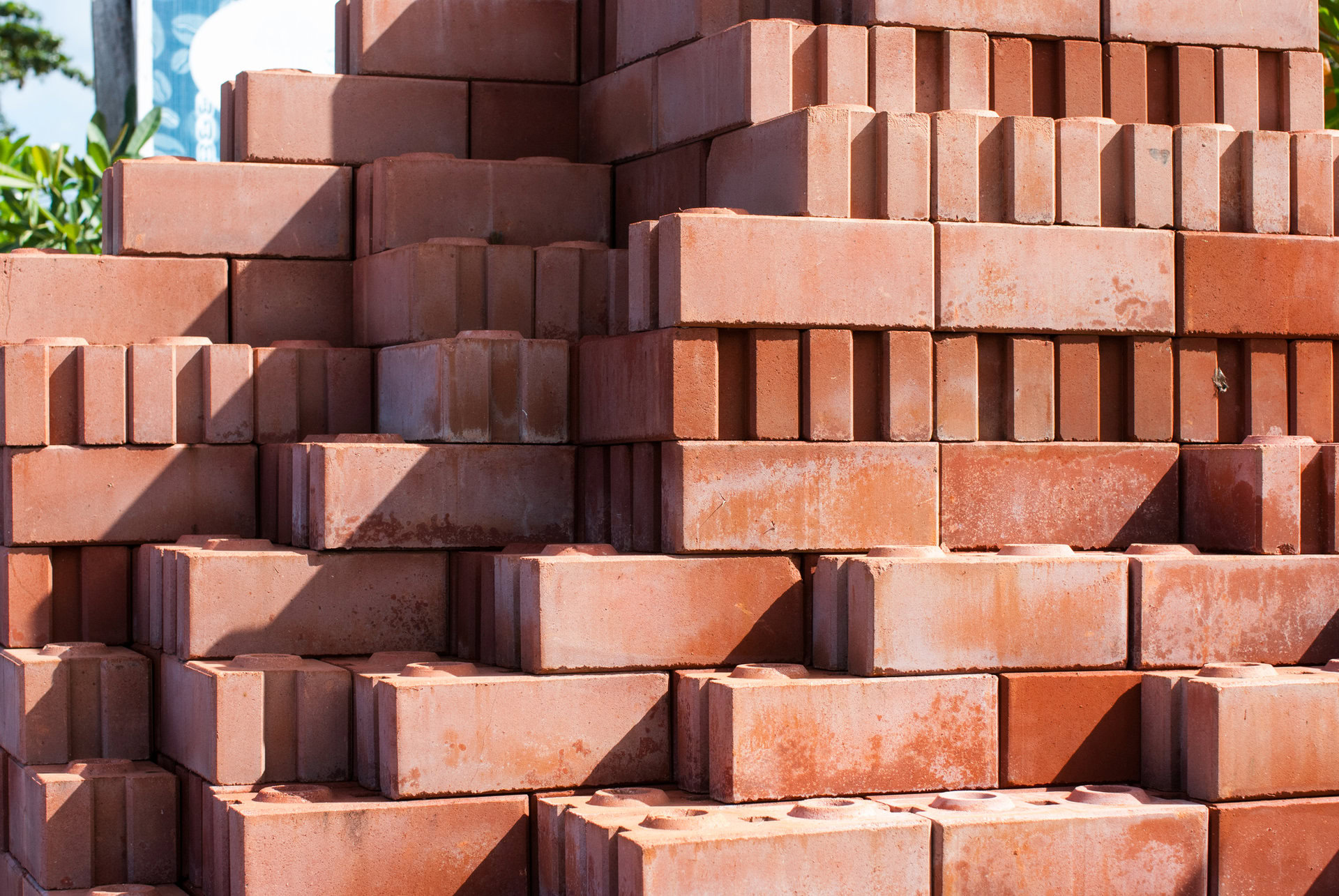How Many Bricks You Need per m2
To build a brick wall, you’ll first need to dig out a calculator.
That’s because whether you’re building a new home, adding an extension, or just repairing a brick wall, you must clearly understand how many bricks you will need to complete your project.
This will enable you to estimate the project’s cost, plan for the number of bricks you need, and ensure you have enough labour to complete the job. To help, we’ve created this step-by-step guide for calculating the number of bricks per square metre needed for your construction project.

Factors That Affect UK Brick Requirements
Several factors will determine the number of bricks per square metre. These include the size of the bricks, the type of mortar, and the pattern or design you want to create.
Let’s take a closer look.
Brick Size
First, you’ll need to consider the size of the bricks you are using to get an accurate calculation. Standard bricks are usually 215mm long, 102.5mm wide and 65mm high; however, some types of bricks may be sized slightly differently.
Mortar Type
A thinner mortar joint will require more bricks, while a thicker joint will require fewer bricks. The type of mortar used will also impact the overall strength of the wall.
Wall Design
Next, consider how the design or pattern of the wall impacts the number of bricks needed. A herringbone pattern, for example, requires more bricks to be used than a traditional straight-laid wall.
How Many Bricks are Used in an Average UK House?
The average UK house is constructed from between 7,000 and 15,000 bricks. This figure can vary greatly, however, depending on the size and design of the house.
Estimating the Number of Bricks Per Square Meter
It takes an average of about 60 bricks to build one square metre of wall. This is just an estimate; your actual needs may be slightly higher or lower. To estimate the number of bricks you need per m2, you will need to consider the factors discussed above.
To get a more accurate estimate, you can use the following formula: Bricks needed = (wall height (m) x wall length (m) / (brick height (m) x mortar joint width (m)).
Step 1: Measure the Area
First, you’ll need to calculate the area of the wall you wish to build. To do this, you must measure the wall’s length and height. If the wall is not a simple rectangle shape, divide the wall into smaller rectangles and measure each area separately.
Step 2: Determine the Size of the Bricks
Now, you need to determine the size of the bricks you will use. Most bricks are around 215mm x 102.5mm x 65mm, but be sure to check the size of your bricks to ensure accurate calculations.
Step 3: Calculate the Number of Bricks per Square Metre
Divide the size of a single brick by the total area of the wall. This will give you the number of bricks per m2. Calculate the total area of the wall by multiplying the length of the wall by the height of the wall, for example,if the height is 2 metres and the width is 10 metres, the total area is 20 square metres.
Step 4: Calculate the Number of Bricks
To calculate the number of bricks required, multiply the number per square metre by the total area of the wall. This will give you the total number of bricks needed for the project. You should add 10% to this number to allow for damage to bricks, such as cuts and breaks during the building process.
Step 5: Calculate the Number of Courses
The last stage is calculating the number of courses (or rows) of bricks necessary to complete your project. To do this, you need to divide the height of the wall by the height of a single brick.
Conclusion
Calculating how many bricks are required per m2 is essential for success in any brick wall construction project. The size of the bricks, the type of mortar used, and the wall design must all be considered for an accurate estimate of the number of bricks needed. Armed with this information, you can make informed decisions to complete the project successfully.